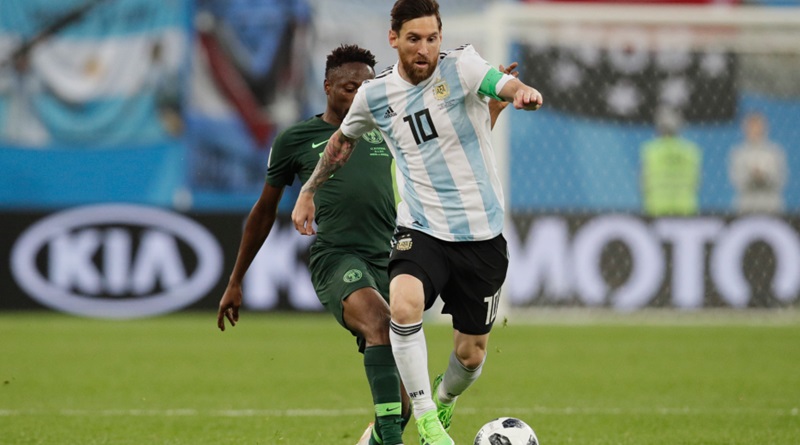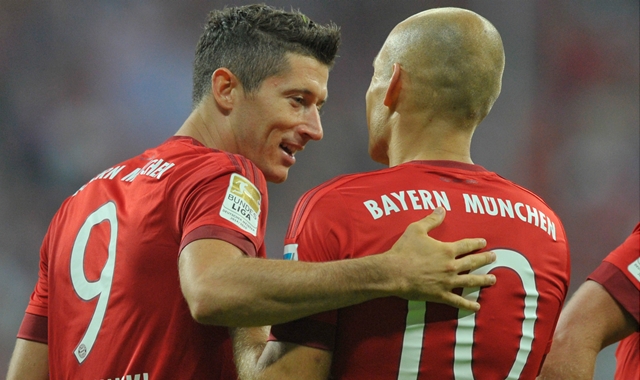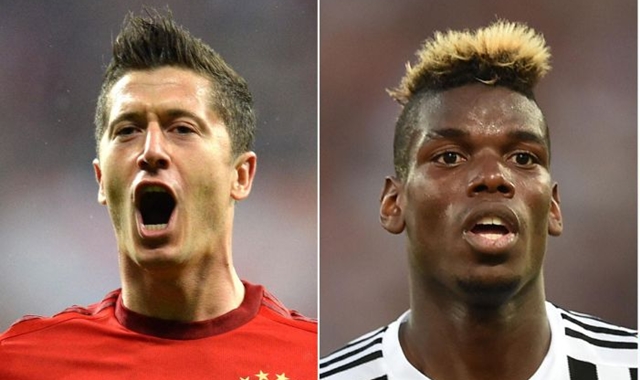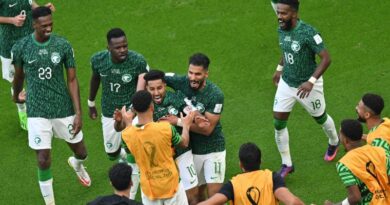Five things we learned from matchday 3 in Group D

Group D at this summer’s World Cup was labeled as the “Group of Death”. With Argentina, Nigeria, Iceland, and Croatia, it certainly deserves to be nominated as the toughest at the tournament, and it provided its fair share of entertainment. The ultimate group winner wasn’t who many had expected, whilst a tournament favorite had to battle and claw their way to a round of 16 spot. Meanwhile, a debutant side fought bravely at their first ever World Cup and was unfortunate not to leave with more, whilst a young and ambitious side nearly ended their hoodoo against a tournament giant and will rue how they handled their tournament opener.
Here are five things we learned from matchday three in Group D, which was arguably among the most interesting final group stage matchdays of this tournament.
1. Nigeria was robbed
Unless if one is an Argentina fan, one can’t help but feel sorry for Nigeria. The Super Eagles, who started off their tournament badly by losing to Croatia, rebounded brilliantly to see off Iceland on matchday two and put themselves in contention for a spot in the round of 16. They took on Argentina full of confidence, and despite going down early following Lionel Messi’s strike, they kept on fighting and earned a deserved equalizer when Victor Moses converted his spot-kick. Furthermore, 19-year-old shot-stopper Francis Uzoho kept his side in the game with a brilliant save before half-time to prevent Argentina from going 2-0 up in the first period.
However, a dubious officiating decision turned the tide of the game. Marco Rojo’s obvious handball was allowed to stand unpunished, and in a bitter twist of fate, it was the same Rojo who would go on to net Argentina’s game-winner to break Nigerian fans’ hearts (and quite a few neutrals rooting for the underdog) and help La Albiceleste sneak into the round of 16.
That’s not to say that Argentina didn’t deserve the win – they were a vastly improved side as opposed to the one that was an utter disaster against Croatia. But watch the clip over and over again: It’s very clear that Rojo committed a handball and got away with it.
2. However, Nigeria still do have themselves to blame for a poor showing on matchday one
Where was this Nigeria side on matchday one? Had they shown more aggression going forward, certainly they could have beaten Croatia – or at least nicked a goal or two – and that would have changed the tide of proceedings in Group D. By losing to the Croats, Gernot Rohr’s side dug themselves into a deep hole. Although they were brilliant against Iceland and earned a deserved 2-0 win, the feeling was that they would face an uphill battle against an Argentina side with their backs against the wall and desperate for redemption.
Still, Rohr admitted that his young team was built for the 2022 World Cup, and with this performance, they can be proud. It’s only a shame that they didn’t push Croatia more as their performances against Iceland and Argentina show they’re a very strong team with a lot of promise.
3. Argentina really need to improve to have any chance against France
France hasn’t been at their best, either, but Argentina has been even worse. La Albiceleste finally woke up from their slumber to see off Nigeria, with Lionel Messi opening his account, but there clearly is still a lot of room for improvement. Nigeria’s speedy attackers, including Ahmed Musa and Odion Ighalo – the former of who scored a brace against Argentina at the 2014 World Cup – ran rings around Argentina’s static defense and had things turned out better, well, Rojo’s strike may not have counted for more than a consolation effort.
Defense isn’t their only problem. Gonzalo Higuain’s frustrating profligacy was on full show yet again, as he missed a gilt-edged chance to put Argentina ahead. Fans of Juventus have seen him do this time and time again for the Bianconeri, and he’s been the culprit for Argentina during their last three finals.
And Jorge Sampaoli’s tactical selections still don’t have people convinced, with Sergio Aguero left on the bench for the must-win tie against Nigeria until the 80th minute. Paulo Dybala, meanwhile, was not even given a run-out as Sampaoli opted to stick with Higuain throughout. Yes, the ex-Napoli man hustled and tried to contribute to the team effort, but he’s a striker. Striker’s jobs are to score goals, simple as that and alleviate the pressure on the team as a whole. Sampaoli will have plenty to ponder over as they prepare for their upcoming game against France, as unlike in the group stages, there will be no do-overs if they don’t get things right this weekend.
4. Iceland have made their fans proud
Yes, the debutants were unfortunate not to win a single game at their first-ever World Cup. But Iceland, who are the smallest ever nation to qualify for this tournament, made their loyal fans proud. Their impressive 1-1 draw against Argentina, including Hannes Halldorsson’s save on Messi’s spot-kick, is something they will forever remember. They were outplayed by Nigeria, and unfortunately, Gylfi Sigurdsson couldn’t convert his penalty to give his side a way back into that game. However, they were solid against Croatia, with Sigurdsson making amends for his earlier miss, only to see that joy short-lived when the Vatreni managed to grab another goal.
Nonetheless, it was a solid showing by the team nicknamed “Our Boys” by their fans. Finishing bottom of the group is never something anyone will want, but at least the players will have plenty of stories to tell their grandkids – namely that famous 1-1 stalemate against South American powerhouse Argentina in a game many expected them to be humiliated.
5. Croatia living up to their so-called “dark horses” tag?
Back in 1998, Croatia shocked everyone by finishing third at the World Cup. Flash-forward 20 years later, and they’re through to the round of 16, with a favorable draw against Denmark the reward for managing to top their group. The penalty they conceded to Iceland was the only error on an otherwise strong showing by Zlatko Dalic’s side, and Luka Modric continues to tirelessly lead by example in the middle of the park. Dalic opted to rotate his squad somewhat for the tie against Iceland, and they still managed to come out on top, which bodes well for the team’s chances at an actual deep run this summer in Russia.
Often called “dark horses” but failing to live up to that, is Croatia finally showing why they should be taken seriously as outside candidates? Based on their performances from the group stage so far, perhaps, but if they can see off Denmark, then it’s Spain looming in the quarter-finals. And having beaten Argentina in resounding fashion, Croatia will certainly not be afraid of their clash with La Furia Roja, who have had their own issues in this competition.
In short, Croatia can certainly make waves this summer and a semi-finals berth isn’t too out of the realm of possibility if they can continue in the same vein of form.



